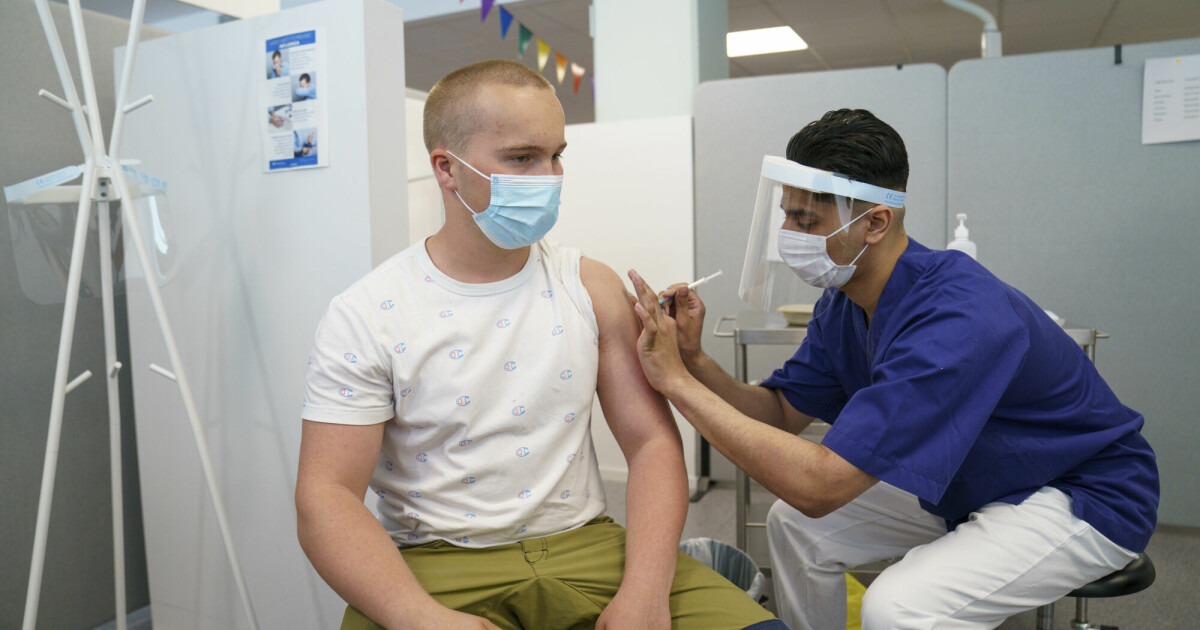Money reward made more Swedes get vaccinated
Vaccines save lives. But if too few take the vaccine, it could put public health at risk.
Therefore, in order to increase the vaccination rate, the authorities in the United States, Greece and parts of Canada have taken the step of offering citizens and rewards for being vaccinated.
President Biden has called on states to give $ 100, about $ 850, to those who roll up their sleeves and get vaccinated.
Men such measures work?
Economists at universities in Sweden and Copenhagen have achieved studied effects of bribery. The study is published in Science, and shows that reward has a certain effect.
Lured with money
The participants in the study consisted of 8,286 Swedes between the ages of 18 and 49.
They were then divided randomly into groups.
One group was offered SEK 200 if they wanted to receive covid-19 within a month. The control group did not receive that offer.
The researchers saw if they actually got vaccinated by checking the Public Health Authority’s national vaccination register.
Increased by four percentage points
Reward seemed to grow the vaccination rate by four percentage points.
In the group that was offered a reward, 76 percent wanted a lot. In the second group, “only” 72 percent took the vaccine.
Many more had stated that they intended to take the vaccine.
The experiment was performed this summer.
Steps in all social groups
The researchers were used to whether the bait worked more on certain groups in the population than others.
But to the researchers’ surprise, the vaccination rate increased across gender, age and level of education.
– It indicates that a monetary incentive has the potential to expand the vaccination rate among people regardless of background, says Erik Wengström, one of the researchers behind the study, in a press release.
He is a professor of economics at Lund University’s School of Economics.
Such encouragements increase the vaccination rate even in countries with relatively high levels of vaccination meals against other countries, he believes.
Has very good support in Norway
– We have very good support for the vaccination program and have not seen the need for either reward or coercion, writes Preben Aavitsland at the National Institute of Public Health to forskning.no.
He works in the area management for infection control, environment and health in FHI.
– In Norway, there are small differences, up to 5 percentage points, between Norwegian municipalities. It can have an advantage of underlying factors that age and country of birth can do, he writes. And adds:
Younger adults and people with certain countries of birth have lower support. The capacity of the health service can also play a role in the fact that some municipalities have fewer personnel resources to follow up on groups that are more difficult to reach.
There are huge differences in vaccination coverage for people over the age of 18 in Europe.
– Now differences are no longer due to access to vaccines or the health service’s capacity, but to people’s support.
Eastern European countries are struggling enormously with a lack of trust in the population for vaccines and for the authorities, Aavitsland points out.
Here you can see the vaccination rate in European countries European Center for Disease Prevention and Control of COVID-19 Vaccine Tracker.
May cause adverse signal effect
Previous research in the field of rewarding people for achieving health effects has been mixed.
And the researchers themselves point out that monetary rewards can have the disadvantage that it can signal that getting vaccinated can be dangerous.
It can also go beyond the motivation many regardless have to vaccinate themselves in order to others.
-But we find that a small financial incentive can grow the vaccination rate, says Pol Campos-Mercade, and another of the researchers behind the study. He is a postdoctoral fellow at the University of Copenhagen.
The researchers emphasize that they do not decide whether or not it is ethically acceptable to pay people to be vaccinated.
But is it worth it?
Another question is whether it is profitable to pay people to get vaccinated. The researchers do no in-depth cost analysis of this.
But they assume that it costs lower costs to society to pay people to get vaccinated.
-It can save lives, says Pol Campos-Mercade in the press release.
Besides, money does not disappear, it is just transferred from the state to the citizens, he points out.
– Should consider as a tool
The experiment was conducted between May and July this year.
The researchers describe that they will not be able to result in different today. Or whether the result would be different if the amount was smaller or larger.
But they can quickly beat that even low rewards can grow the vaccination rate.
– As the pandemic continues, images incentive should be one of the tools that are worth considering in the fight to improve the spread of infection, Wengström says to expertsvar.se.
In addition to social economists from the School of Economics at Lund University in Sweden, and the University of Copenhagen, economics in Switzerland and the USA also participated.
Reference:
P. Campos-Mercade mf: Monetary incentives increase vaccinations against COVID-19. Science, October 7, 2021.




